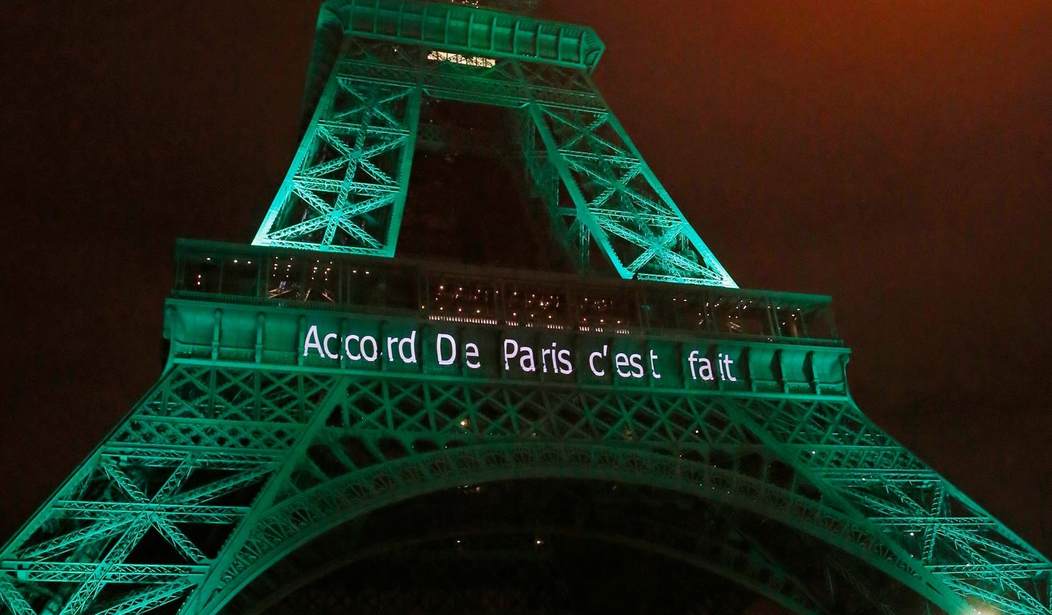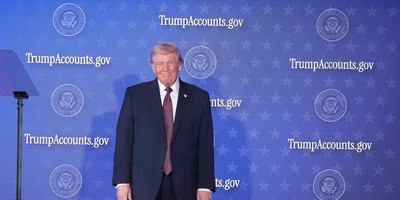Donald Trump's withdrawal of the United States from the Paris Agreement is both a geopolitical shift likely to have positive effects abroad and a monetary relief for American taxpayers.
The pecuniary implications of Trump’s withdrawal are substantial: The United States has shouldered an outsized share of the United Nations Framework Convention on Climate Change secretariat’s budget, contributing approximately 22% of its funding. For the 2024-2025 cycle alone, the secretariat’s operating costs are projected to be more than $96 million.
Moreover, the Green Climate Fund (GCF), the financial arm of the Paris Agreement, has long relied on U.S. contributions. The Biden administration’s recent pledge of $3 billion for the GCF’s second replenishment (2024-2027) underscores the significant financial commitments.
Trump’s executive order states that international agreements like the Paris Climate agreement “steer American taxpayer dollars to countries that do not require, or merit, financial assistance in the interests of the American people.”
To that point, India and China, for example, receive billions in “climate” welfare while boosting their use of fossil fuels to meet increasing demand for energy, which is expected to continue until at least mid-century. So, even if reducing combustion of hydrocarbons were a worthwhile objective (it isn’t), the huge sums being thrown at it are accomplishing nothing.
For the U.S. at least, this is ending. As per the order, the U.S. Ambassador to the U.N., in collaboration with the Secretary of State and Secretary of the Treasury, “will immediately cease or revoke any purported financial commitment made by the United States under the United Nations Framework Convention on Climate Change. ... The U.S. International Climate Finance Plan is revoked and rescinded immediately.”
Recommended
Gone is the U.S. obligation to funnel billions into sustaining a U.N. bureaucracy’s grandiose fantasy of saving the world from an imagined dystopian future based on pseudoscience and manipulated forecasts. Thanks to Trump’s action, the flow of funds will stop.
Weakening the Climate Agenda
Developing nations have been ambivalent about pursuing the Paris Agreement’s reductions of carbon dioxide emissions: Although glad to accept U.N. handouts to help finance “green” energy projects, Third World policymakers chafe at the pressures of climate communists to abandon the fossil fuels needed for economic growth. In fact, climate mandates have come to be viewed as a form of neo-colonialism that stifles economic growth of the “colonized” while preserving the status quo for wealthier nations
Without American funding, the U.N.’s ability to coerce developing nations into adopting stringent “decarbonization” policies is significantly diminished.
The much-trumpeted moral authority of the Paris Agreement has long been tarnished by the hypocrisy of Western elites calling on the Global South to embrace wind turbines and solar panels while their countries continue to live “high-carbon” lifestyles.
The U.S. departure from the climate club further undermines its cachet of virtue and likely will embolden countries in the Global South to chart their own energy strategies with less concern about diplomatic and financial retribution – much less fretting about coming up short ethically.
As the International Energy Agency (IEA) has repeatedly noted, global energy demand is set to rise in the coming decades, driven primarily by growth in developing countries. Meeting this need will require uninhibited use of oil, natural gas and coal.
Being disconnected from the realities of physics and economics, the Paris Agreement’s anti-fossil fuel approach is ill-suited to address energy challenges of the future. By rejecting this flawed framework, Trump has not only helped to safeguard the U.S. treasury but also has opened the door to more pragmatic energy policies for others.
The U.S. withdrawal is a geopolitical equalizer, leveling the playing field for developing nations that have long been pressured to prioritize Western climate goals. Now, the ball is in the court of these up-and-coming economies. Will they seize the moment and chart a new path? Only the future will tell.
Vijay Jayaraj is a Science and Research Associate at the CO2 Coalition, Fairfax, Virginia. He holds an M.S. in environmental sciences from the University of East Anglia, U.K., a postgraduate degree in energy management from Robert Gordon University U.K., and a bachelor’s in engineering from Anna University, India.

























Join the conversation as a VIP Member